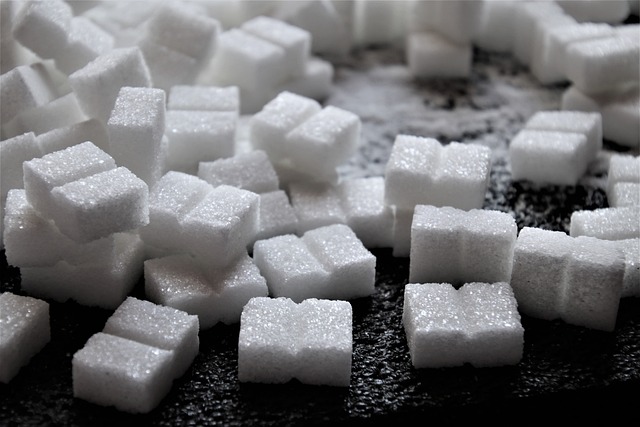Sugar addiction is becoming an ever-present issue in modern life. It’s not just about eating too much sugar – it’s about feeling the irresistible pull toward it. Whether it’s sugary snacks, sodas, or desserts, the craving can sometimes feel overpowering. Understanding sugar addiction is the first step in breaking free from its grip. Let’s dive into what sugar addiction is, how it impacts your body and mind, and what you can do to regain control.
What is Sugar Addiction?
Sugar addiction is more than just enjoying a sweet treat now and then. It’s a compulsive craving for sugary foods or drinks, to the point where it interferes with your daily life. When you eat sugar, your brain releases feel-good chemicals like dopamine. This makes you feel good, but over time, your brain becomes dependent on that “sugar high.” As a result, you crave more sugar to maintain that sense of pleasure.
How Sugar Addiction Develops
Sugar addiction develops through repeated consumption. Every time you eat sugar, you get a burst of happiness, which reinforces the desire to consume more. This creates a cycle: sugar releases dopamine, you feel good, and you want more. The more you eat, the more your brain craves it. Your brain starts expecting that sweet hit regularly. Eventually, your body’s craving for sugar becomes automatic, making it harder to say no.
But there’s more to it than just the physical craving. Emotional triggers like stress, boredom, or even habit can push you toward sugary foods. You might turn to a sugary snack for comfort, a quick energy boost, or out of habit, even if you’re not really hungry.
The Impact of Sugar Addiction on Your Health
Sugar addiction doesn’t just affect your waistline. It takes a toll on your entire body and mind. The more sugar you consume, the greater the risk for serious health issues. Let’s explore the physical and mental effects of sugar addiction.
1. Obesity
The connection between sugar and weight gain is well-documented. Sugary foods are high in calories but low in nutrients. When consumed in excess, sugar leads to fat storage. This contributes directly to obesity. If you eat a lot of sugar, your body stores more fat, especially around your belly.
2. Type 2 Diabetes
Excess sugar causes insulin resistance. Over time, your body’s cells stop responding to insulin properly. This raises blood sugar levels, leading to type 2 diabetes. Diabetes is a chronic condition that requires careful management, or it could lead to severe complications, including kidney damage or heart disease.
3. Heart Disease
Consuming too much sugar can increase your risk of developing heart disease. High sugar intake causes inflammation, raises blood pressure, and boosts triglycerides, all of which are major risk factors for cardiovascular problems. This means the more sugar you eat, the harder it becomes for your heart to stay healthy.
4. Mental Health Issues
Sugar doesn’t just affect your body. It can significantly impact your mental health too. When you eat sugar, you get a quick boost of energy and happiness, but that high doesn’t last. Soon after, you may experience a “sugar crash,” leading to feelings of fatigue, irritability, or anxiety. Constant fluctuations in blood sugar levels can make you feel emotionally unstable.
5. Tooth Decay
It’s no surprise that sugar is bad for your teeth. Sugary foods feed the harmful bacteria in your mouth, causing them to produce acid that attacks tooth enamel. Over time, this leads to cavities, gum disease, and other dental issues.
Table: Updated Facts About Sugar and Health Risks
| Health Condition | Impact of Sugar Consumption | Facts (2023) |
|---|---|---|
| Obesity | Sugar increases fat storage in the body. | Over 40% of adults are obese. |
| Type 2 Diabetes | Sugar leads to insulin resistance. | More than 30 million Americans have diabetes. |
| Heart Disease | Sugar raises blood pressure and triglycerides. | 1 in 4 deaths globally is linked to heart disease. |
| Mental Health | Sugar impacts mood, leading to anxiety. | 1 in 5 people globally suffers from depression or anxiety. |
| Tooth Decay | Sugar feeds bacteria that cause tooth decay. | 92% of adults in the U.S. have cavities. |
6. Addiction to Sugar: How It Affects Your Brain
The addictive nature of sugar mimics that of addictive substances like drugs or alcohol. When you eat sugar, the brain’s reward system is activated. Your brain releases dopamine, a neurotransmitter that makes you feel good. This is the same chemical released when you do something pleasurable. Over time, your brain gets used to this reward. It craves the dopamine rush, which makes you want more sugar.
As your body becomes accustomed to this “sugar high,” it starts to demand more to achieve the same pleasure. The result is a vicious cycle that’s hard to break. You can even experience withdrawal symptoms, such as irritability, cravings, and fatigue, when you cut back on sugar.
How to Break Free from Sugar Addiction
Breaking free from sugar addiction can feel overwhelming, but it’s possible with the right strategies. You don’t need to quit cold turkey or deprive yourself. Instead, start with small, manageable changes that will help you regain control of your sugar intake.
1. Gradual Reduction
Instead of cutting sugar out completely, gradually reduce the amount you consume. If you drink sugary beverages, start replacing them with water or herbal teas. If you’re used to eating sugary snacks, try swapping them for fruit or nuts. Slowly decreasing sugar intake helps reduce cravings without overwhelming your body.
2. Replace with Healthy Alternatives
Instead of reaching for a sugary treat, try healthier alternatives. Fresh fruit, whole grains, or even dark chocolate can satisfy your sweet tooth without the same negative effects on your body. Choose natural sweeteners like honey or maple syrup over processed sugar, as they have fewer harmful effects on your blood sugar levels.
3. Stay Active
Exercise helps regulate blood sugar levels and reduce cravings. Even a 30-minute walk can help curb sugar cravings and improve your mood. Physical activity boosts endorphins, which can reduce your desire for that sugar rush.
4. Mindful Eating
Mindfulness techniques can help you manage your cravings. When you feel the urge to eat something sugary, take a moment to check in with your emotions. Are you truly hungry, or are you eating out of stress or boredom? Practicing mindful eating can help you make healthier choices.
5. Get Professional Help
If you find it hard to break free from sugar addiction on your own, consider seeking professional help. Cognitive Behavioral Therapy (CBT) can help you identify the emotional triggers behind your cravings and teach you healthier coping mechanisms. A therapist can help you develop strategies to manage your addiction.
6. Support System
Having a support system can make a huge difference. Whether it’s friends, family, or an online support group, talking about your challenges can help you stay accountable. You’re not alone in this journey!
Conclusion
Sugar addiction is a real and serious issue that affects millions of people worldwide. The cycle of cravings and sugar highs can have serious consequences for your health, from obesity to heart disease to mental health problems. However, with the right strategies, you can break free from the grip of sugar addiction. Start by gradually reducing sugar intake, replacing unhealthy foods with healthier alternatives, and practicing mindfulness. It’s a journey, but with the right mindset and support, you can regain control of your health and well-being.


